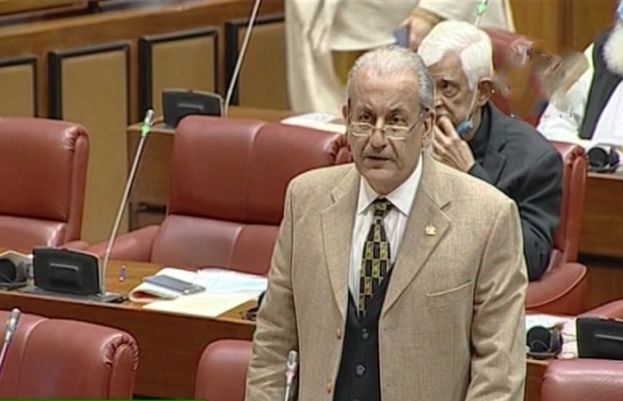
Rabbani, speaking during a session of the Senate, said despite the ceasefire between the two sides, Pakistan Army's soldiers were still getting martyred.
"Riasat-e-Madina cannot be established on secretive agreements [...] Pakistan's civil-military bureaucracy will have to be answerable before the Parliament," he said.
The former chairman of the Senate said that Pakistan's civil and military bureaucracy would have to answer to the Parliament, adding that the ground reality is that the state of Pakistan refers to the civil and military bureaucracy of Pakistan.
"The state of Pakistan (unfortunately) does not mean the people sitting in Parliament," he said. "The state will have to inform the people under what conditions this ceasefire deal was reached."
The PPP stalwart said that despite the ceasefire, various groups are reorganising in Afghanistan.
"Until the root causes of the problems are ascertained issues will continue to arise," he said.
The senator regretted that as extremist groups gained footing in the country, "the state remained a silent spectator".
"Extremist groups have torn up the state's writ to shreds," he said.
Speaking of missing persons, Rabbani said that the families of such people continue to search for them "while the state is busy hiding them".
The senator also spoke of reports that Taliban forces at the Pak-Afghan border had prevented fencing work.
"Will the foreign minister brief the parliament about this?" he asked.
Rabbani said that the state could not afford any more secret agreements. "What would be the future structure of the state [then]?" he asked.
He called for the National Action Plan to be debated once more in Parliament and for measures to be taken so it can be implemented.
He further said that the state "used religion to advance its political agenda".
No comments:
Post a Comment